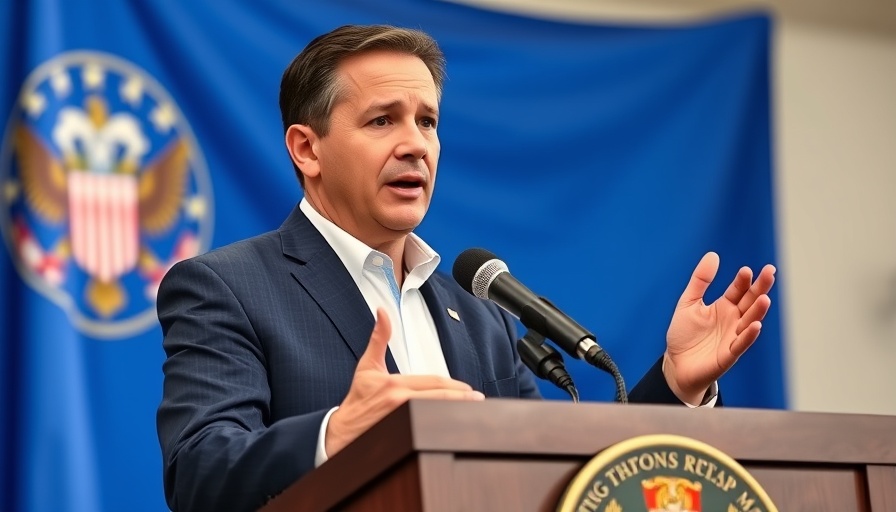
Netanyahu’s Urgent Plea Amidst Rising Tensions
In a recent address, Israeli Prime Minister Benjamin Netanyahu emphasized the urgent need for international guarantees in order to prevent a resurgence of conflict with Hamas. With ongoing hostilities and a lack of clarity regarding a hostage situation, Netanyahu's remarks highlight the complex political landscape in the Middle East, where the interplay between diplomacy and military action is critically scrutinized.
The Role of International Guarantees
Netanyahu has raised concerns that Hamas is demanding extensive international guarantees to avert further violence. These guarantees could involve promises from international actors to assist in moderating future escalations or ensuring humanitarian access to Gaza. The challenge remains that such negotiations must navigate the intricacies of opposing political agendas from regional and international players.
Understanding the Context of the Conflict
The backdrop of Netanyahu's statement is essential for understanding the regional dynamics at play. The conflict between Israel and Hamas has persisted for decades, characterized by cycles of violence and temporary ceasefires. Local populations, including Christians and other minorities in the region, are often caught in the crossfire, further complicating an already strained humanitarian situation.
The Humanitarian Aspect of Negotiations
The implications of Netanyahu's request extend into humanitarian realms as well. For mission-minded Christians and social justice advocates, ensuring the safety and dignity of civilians during and after conflicts is paramount. The need for urgent humanitarian assistance has grown, particularly for those suffering under the weight of continued violence.
The Intersection of Faith and Politics
This scenario underscores the complexity of interfaith relationships in the region. While tensions between Jewish and Muslim communities often dominate headlines, Christians in Israel and Palestine play a vital role in advocating for peace and reconciliation. Engaging in dialogue about international guarantees could foster a more nuanced understanding of these intersecting faiths.
Future Predictions and Opportunities for Peace
Looking forward, the prospects for establishing peace in the Middle East remain delicate but not impossible. Advocates for humanitarian efforts and interfaith dialogue can play crucial roles in shaping discussions around guarantees that do not solely focus on military outcomes but also emphasize long-term stability and development.
As concerned individuals engaged in global humanitarian efforts, now is the time to advocate for peaceful resolutions that address the root causes of conflict. Understanding the geopolitical implications of Netanyahu's demands can help inform our advocacy and support efforts in the region.
 Add Row
Add Row  Add
Add 








Write A Comment